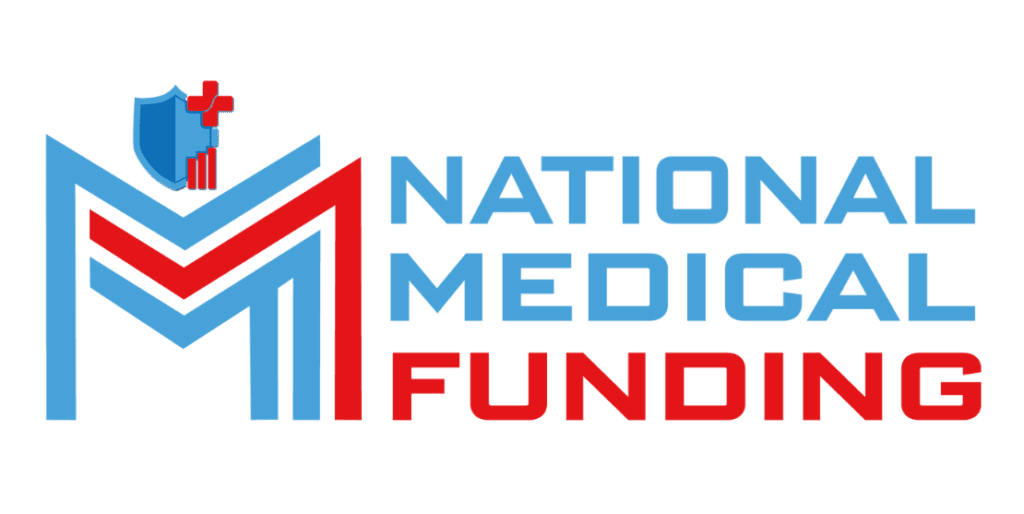
Rural Healthcare Finance: Securing Funding Wh
The Rural Reality: When the Local Bank Closes the Door ...

Saturday and Sunday – CLOSED
support@nationalmedicalfunding.com



Running a medical practice is rewarding—but it’s also expensive. From diagnostic machines to surgical tools, equipment costs can add up quickly. So, what happens if your credit isn’t perfect? Can you still qualify for medical equipment financing?
The short answer is yes, you can. Thanks to specialized lenders and flexible healthcare finance solutions, doctors, clinics, and even small practices can secure loans—even with less-than-ideal credit.
In this guide, we’ll walk through everything you need to know: how bad credit affects your chances, which options are available, and how to improve your odds of approval. Don’t worry—we’ll keep it simple, easy, and practical so you can focus on what matters most: providing excellent patient care.
When most people think of loans, they immediately think of credit scores. And yes, credit scores do matter. A strong score can help you get better terms, lower interest rates, and faster approval. But here’s the good news: in healthcare financing, credit isn’t the only factor.
Unlike restaurants or retail shops, medical practices are considered stable businesses. Patients always need doctors, labs, and hospitals. This steady demand makes lenders more willing to work with medical professionals—even those with past financial setbacks.
That’s why medical financing solutions are often more flexible than traditional small business loans.
You might think bad credit equals automatic rejection. But that’s simply not true in the healthcare world. Lenders know that medical equipment is essential for running a practice. Without it, you can’t serve patients. That means financing equipment isn’t just about risk—it’s about necessity.
Here’s what many lenders look at besides credit:
So, while credit matters, it isn’t the whole story. This is especially true if you explore healthcare funding solutions designed for doctors and clinics.
Before we go further, let’s make sure we’re clear: what exactly is medical equipment financing?
It’s a loan or lease designed specifically for healthcare practices to buy equipment. Instead of paying thousands (or millions) upfront, you spread the cost over time. The best part? The equipment itself often acts as security, making lenders more comfortable approving loans—even if your credit is less than perfect.
This type of financing covers things like:
It’s one of the most popular ways for healthcare professionals to grow without draining their savings.

There’s more than one way to finance equipment. Here’s a quick comparison table:
Financing Option | How It Works | Best For | Credit Flexibility |
Equipment Loan | Borrow money to buy equipment; repay monthly | Practices wanting ownership | Moderate to flexible |
Equipment Lease | Rent equipment for a set term; option to upgrade | Practices needing frequent tech upgrades | Easier than loans |
Line of Credit | Flexible borrowing, like a credit card for your practice | Covering smaller purchases or repairs | Depends on lender |
Medical Practice Startup Loans | Larger funding for new practices (includes equipment + other costs) | New doctors starting out | More documentation needed |

When people hear “loan,” they often think of banks. But banks aren’t always the best option—especially if your credit isn’t perfect. Banks tend to have rigid requirements and long approval timelines.
Specialized lenders, on the other hand, focus on healthcare. They understand insurance reimbursements, seasonal patient flow, and the unique needs of medical practices. That means they’re more flexible with credit and often faster with approvals.
These healthcare finance solutions are designed with doctors in mind, not retail shop owners or restaurants.
Even with bad credit, you can take smart steps to strengthen your application:
These steps show lenders you’re serious and prepared. For more strategies, read The Benefits of a Physician Loan.
When comparing options, it’s important to understand the difference between physician loans and conventional loans.
This is why many healthcare providers choose physician-specific programs. To learn more, check out Physician Loan vs. Conventional Loan.

Getting approved for equipment financing is step one. Step two is ensuring your practice remains financially strong. That means balancing loan repayments with daily operating expenses.
Here are some long-term tips:
For a deeper dive into loan structures, you can also read Physician Loan vs. Normal Loan.
Even with bad credit, there are alternatives to consider:
These paths may not build ownership as quickly, but they ensure you can keep serving patients without interruption.
While you can secure funding now, improving your credit is key for long-term success. Here are three simple habits:
Each small step adds up. Over time, you’ll qualify for larger, more favorable financing options, making growth easier.
So, can you get medical equipment financing with bad credit? The answer is yes. While traditional banks may hesitate, specialized lenders, equipment leasing, and tailored medical financing solutions make it possible.
Bad credit doesn’t have to stop you from upgrading your practice. With preparation, strategy, and the right partner, you can secure the equipment you need, keep your practice running smoothly, and continue caring for patients.
Remember: lenders want healthcare providers to succeed because communities need your services. The key is choosing healthcare finance solutions designed with your profession in mind.
The Rural Reality: When the Local Bank Closes the Door ...
Why Change is the New Normal in Speciality Care H...

Fuel your medical practice’s growth with financial solutions tailored to your needs. We’re here to support independent practitioners and group practices with strategies built for success.


Mon Fri: 8:00am – 6:00pm
Saturday: Closed
Sunday: Closed
Copyright © 2025 National Medical Funding